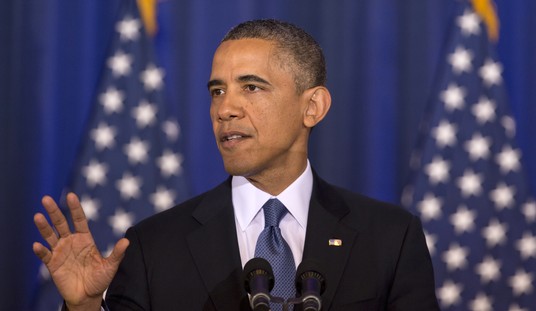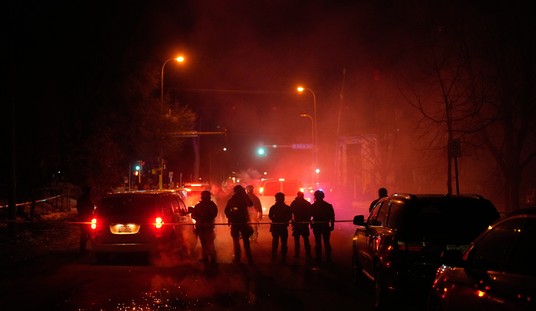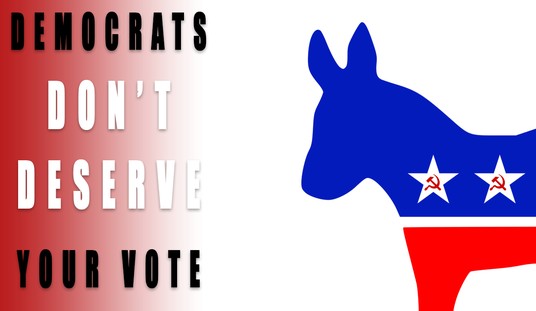How could we with Claudia on the watch:
In the ever-more-amazing United Nations Oil-for-Food scandal, the arrest in Houston last Friday of South Korean businessman Tongsun Park brings us a step closer to understanding the origins of the largest humanitarian fraud in U.N. history. Not least, Park may be able to provide some answers to questions surrounding one of the top former U.N. officials with whom Park had dealings – the godfather of the Kyoto treaty, former potentate of the Canadian-power industry, and longtime eminence of U.N. policy, 76-year-old Canadian Maurice Strong
Park is charged by New York federal prosecutors with acting secretly as an agent of Saddam Hussein’s U.N.-sanctioned regime to try to influence to Saddam’s advantage the shaping of the U.N. Oil-for-Food relief program for Iraq, which ran from 1996 to 2003. Park had not yet entered a plea as of Tuesday night. Allegations made against Park over the past year, some by federal prosecutors, some by Paul Volcker’s U.N.-authorized probe into Oil-for-Food, are Byzantine. They involve tales of Park’s trips in the mid-1990s to Baghdad, and his onward travel, allegedly carrying cardboard boxes of cash, plastic bags filled with cash, and paper bags filled with yet more cash. They also involve tales of Park’s encounters with former U.N. Secretary General Boutros Boutros-Ghali, who has denied any wrongdoing.
Check This Out
But one of the most intriguing episodes in Park’s alleged Iraq-related ventures, as recounted in a Sept. 7, 2005 report from the Volcker committee, involves a Jordanian bank check for $988,885, allegedly bankrolled by Saddam’s regime, made out to “Mr. M. Strong,” and delivered in August of 1997 by Park to Maurice Strong. . (To see a copy of the check, as reproduced in the Volcker report, click here).
When Strong endorsed this check, back in 1997, he was serving as a top aide to the newly promoted Secretary-General Kofi Annan, coordinating U.N. reform. Strong had just finished a stint in 1996 similarly advising Boutros-Ghali on reform issues. Asked last year by Volcker’s team to explain this payment, Strong first denied any memory of the check. Then, when Volcker’s investigators showed him his own signature on the cancelled check, he denied any knowledge of where the funds originally came from. Strong said he had done nothing wrong and that the check was meant solely to cover an investment Park wished to make in one of Strong’s family-controlled companies, Canadian-based Cordex Petroleum Inc.
This is still the great story of our times from which nearly everything flows. This blog has been calling for economic transparency from the UN for some time (here’s one link from February 2005). The Volcker Commission didn’t approach that (no surprise). It went up to a point, but only so far. As Rosett points out, there is still a lot more it could do:
Whatever the reason Volcker’s needle skipped right over Strong’s role in that 1997 transfiguring moment of Annan’s Oil-for-Food “reform,” other investigators, or perhaps Strong himself, might yet provide some better insight into that busy season. If Strong was not the author of the Iraq-program office, perhaps he can tell us who on his small team was. Best of all – improbable though it may sound in a U.N. universe – would be for the Volcker committee and the U.N. itself to allow public access to the archives. It would pose no threat to the innocent – and that may well include Maurice Strong – to let the public peruse the full records of whatever discussion went on inside the U.N. over the decision to create an “Office of the Iraq Programme,” which pretty much conformed to what Saddam reportedly desired, and which Saddam then powerfully exploited to corrupt the biggest humanitarian effort in the history of the U.N.
Open the archives? Why not? We’re waiting, Mr. Volcker.









Join the conversation as a VIP Member